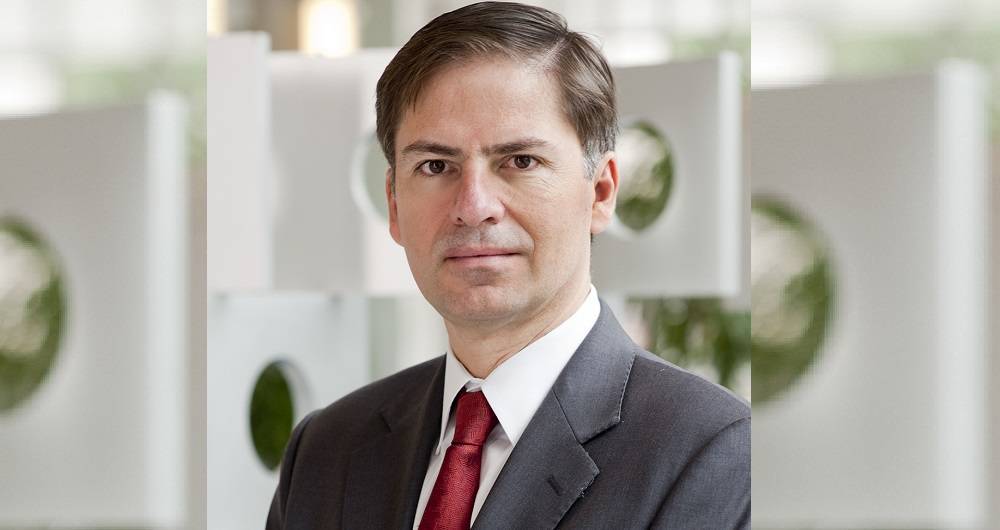A green recovery of Latin America and the Caribbean is possible and necessary
Op-ed by Carlos Felipe Jaramillo, World Bank Vice President for Latin America and the Caribbean
The climate crisis in our region is not going away. Climate, like the COVID-19 crisis, takes the greatest toll on the most vulnerable people in the region. In terms of migration alone, there could be as many as 17 million climate refugees across the region by 2050 from areas where livelihood systems are increasingly compromised by climate change. Both the pandemic and climate crises are magnifying underlying inequities and poor economic performance. As we look to recovery from COVID, we must rebuild better to take the coming climate crisis into account.
Right now, most economies in the region are facing two major challenges: recovering from a severe economic recession while addressing the needed transformations required for inclusive growth and sustainable development that delivers a path out of poverty for everyone. COVID-19 recovery programs that prioritize productivity, inclusion and resilience will lead to more competitiveness and innovation, and will build confidence in government and institutions. This will position Latin America and the Caribbean to combat COVID-19 and climate change and help rebuild the social contract so important to accelerate poverty alleviation and shared prosperity.
Clean energy and clean transport are key sectors in the region’s agenda to rebuild better. Though Latin America already produces most of its electricity from renewable sources, the most important, hydro generation, is increasingly vulnerable to climate change-induced variability and will be increasingly hard to scale to keep pace with increased demand expected once the COVID crisis abates. Non-traditional renewable energies, wind and solar in particular, are now cost-competitive in many countries if regulatory and contractual barriers to their integration into the energy matrix can be overcome. Energy efficiency investments in buildings could reduce carbon footprints while generating many low-skill jobs during building retrofits. On the transport side, a renewed focus on public transit should be a high priority. Designing cities to avoid sprawl and encouraging urban development around transit hubs, like metro and bus stops, will help reduce demand for motorized transit and should go hand-in-hand with affordable bus rapid transit and subway systems that increasingly integrate electric vehicles.
When done well, adapting and building resilience to climate change can generate significant economic, social, and environmental benefits, unlocking growth and jobs while building up natural capital. For example, investment in adaptation infrastructure such as weatherproof roads and climate resilient housing can have immediate positive effects on employment from construction related jobs even as they build longer term resilience for households. For every US$ 1 million invested in the construction sector, close to 200 jobs are expected to be created in Bolivia, 130 jobs in Nicaragua, and 120 in Honduras. According to a recent World Resource Institute and New Climate Economy report, moving to a low-carbon and sustainable economy could add $535 billion to Brazil’s GDP by 2030 compared with business as usual.
Low-carbon pathways don’t have to mean compromising development outcomes, macroeconomic stability or debt sustainability. While the difficult fiscal situation in the region could pose a challenge to climate action, instead it could be an incentive to redirect programs that support unsustainable use of natural resource or carbon intensive pathways that lock countries into low-productivity and reduce competitiveness. Redirection of the estimated $240 billion in annual fuel subsidies in the region could open the space for investments in clean energy and clean transport to move the region to a low carbon future.
That’s why several countries in the region have put climate change and inclusive, resilient development at the center of their COVID recovery plans. Colombia has included clean growth (“Producir conservando y conservar produciendo”) and support for its bioeconomy. Chile has already announced that 30% of the additional resources for public investment under its COVID Recovery plan (Paso a Paso, Chile se Recupera) will be used for sustainable and green projects.
The World Bank is a partner in this endeavor. We approved US$6.6 million to provide funding for Dominica’s emergency response, focusing on enhancing health system capacity and strengthening food security, for both climate resilience and immediate economic recovery. We supported Uruguay with US$400 million in financing to mitigate the economic and social impact of the COVID-19 outbreak, while laying the foundations for a strong and resilient economic recovery. This was a critical response to the concurrent COVID-19 pandemic that hit Uruguay at the same time as a severe drought impacting agricultural production. We have married investment in COVID-19 response and recovery with finance that prioritizes inclusive development and longer-term resilience across our portfolio in the region.
Like COVID-19, climate change has undermined public safety and prosperity across the region. Combatting both together are the key to rebuilding better.
Carlos Felipe Jaramillo is the Vice President of the World Bank for Latin America and the Caribbean
